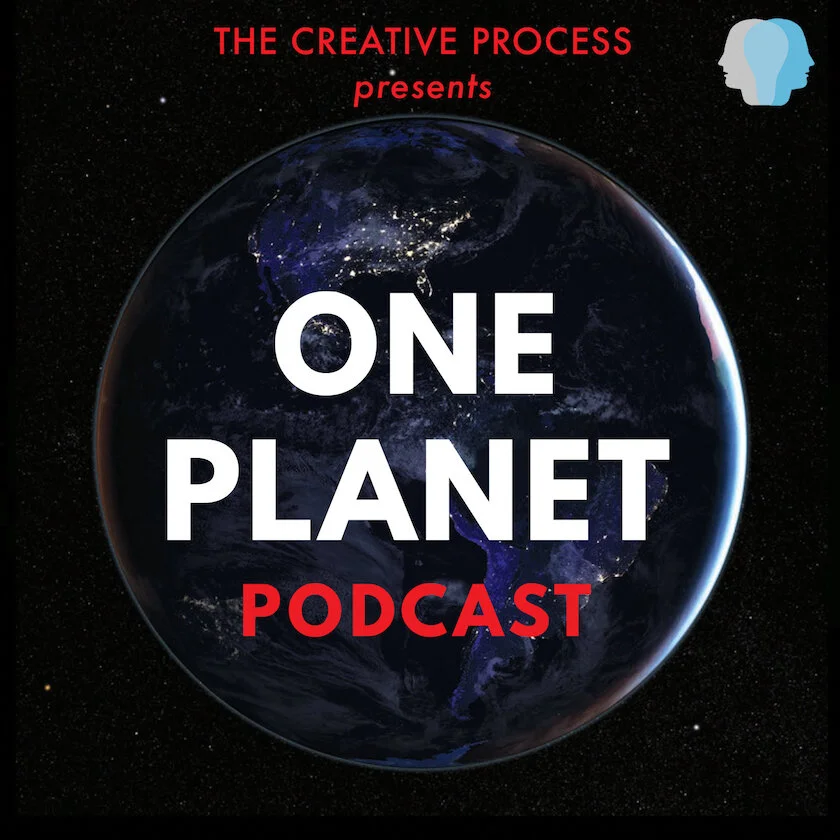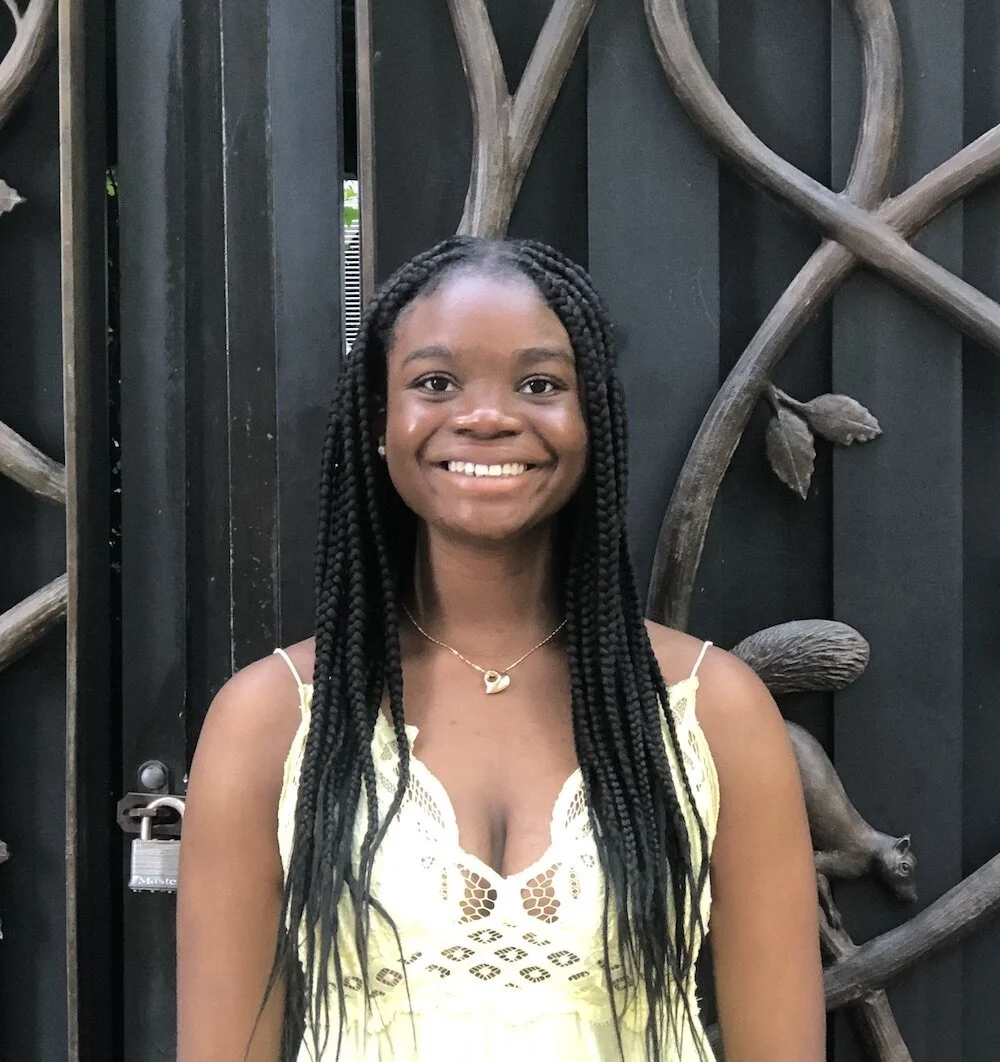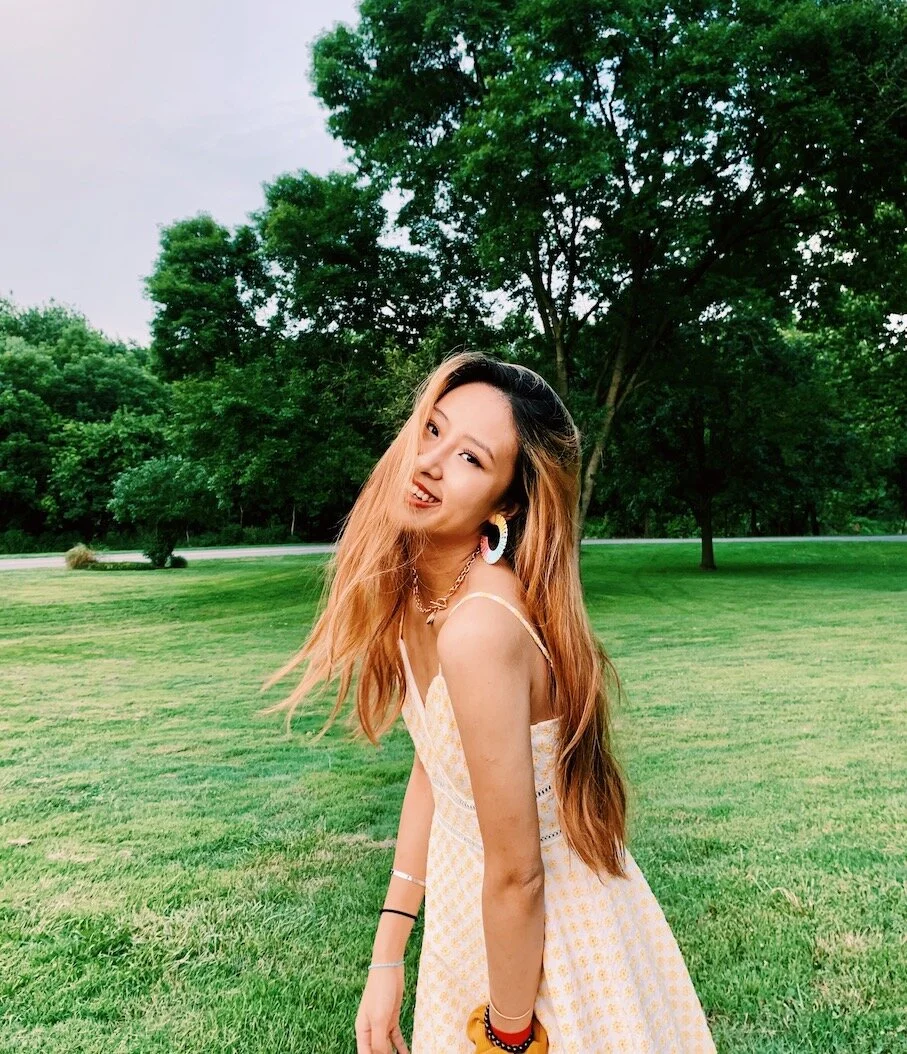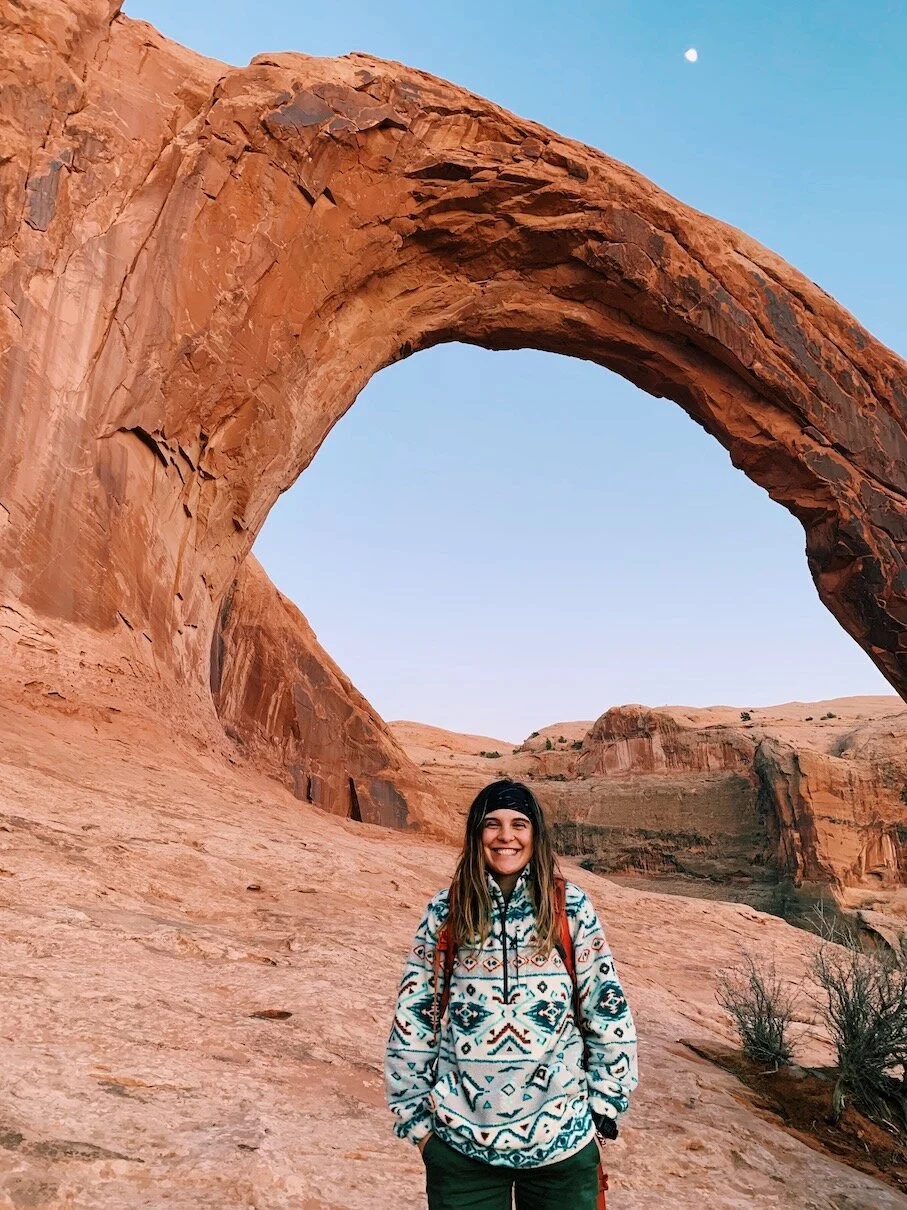I am passionate about the environment and I love to learn about what we can do as individuals to combat climate change. One thing I love about this world is our mountains. As a college student in Colorado, the mountains are my everyday backdrop. I am an avid rock climber, hiker, skier, and mountaineer, so the mountains have always felt like home to me. A specific memory I have that accentuates my love of mountains is from one of my mountaineering trips. I have made it my goal to climb every mountain in Colorado that stands above 14,000 feet in elevation. Last summer I was climbing one such mountain and my partner and I got horribly lost. We were roaming around in a deserted boulder field for about five hours in the scorching hot sun with not nearly enough food or water. At that moment I was awestruck by how small we were and how powerful this mountain was. As humans, we like to think we have conquered nature, but at that moment nature had conquered me. Keeping this experience in mind, I realize now more than ever how important it is to preserve nature. We are all dependent on nature, no matter how much we try to tell ourselves we have conquered it. For this reason, my personal sustainability pledge is to reduce my waste as much as possible. I recycle and compost regularly, I do not use disposable utensils or paper products, and when I am on the trail I always practice the Leave No Trace guidelines. For Earth Day this year, I have registered with my university to take part in the Boulder Creek cleanup where we will pick up litter from in and around the beautiful creek that runs through Boulder.
My most recent project is the original research paper I wrote for my political science research class. I wrote about the causes of democratic backsliding in Latin America and conducted my research to support my thesis. In the future, I would love to take on a more creative role in an academic context. Though I enjoy research, I would be interested to interview others in order to gain a personal account of the topics that interest me.
Storytelling and creativity are the cornerstones of humanity. Without stories, we never would have had the chance to experience the adventures of Odysseus, or the conquests of Robinson Crusoe, or the chilling predictions of George Orwell. In my experiences with The Creative Process, I am contributing to the community of creative people and storytellers. I have done extensive research on academic topics throughout my college career, but I have come to realize that the best way to convince someone else or to inform them is through a story. I am developing these skills with The Creative Process and helping others share their stories.
Ensayo expositivo
Gabriella Gyurkovics
SPAN 3010 – Retórica y composición avanzada
Primavera del 2021
Autoritarismo en América Latina
América Latina es una gran región del mundo. La región incluye toda América del Sur, las Islas del Caribe, Centroamérica, y México. Como muchas otras partes del mundo, América Latina tiene una historia de gobiernos autoritarios. Autoritarismo es un régimen político en que un líder gobierna su país con poder y control en muchos aspectos incluyendo en las vidas de sus ciudadanos. En las palabras de Significados (2016) “El autoritarismo es… una actitud abusiva de la autoridad.” La región de Latinoamérica ha tenido muchos de esos regímenes en su historia. Líderes como Augusto Pinochet en Chile, Jorge Rafael Videla en Argentina, y Nicolás Maduro en Venezuela fueron autoritarios en el pasado y todavía en el presente.
Un gobierno autoritario es un gobierno que cumple considerablemente con las leyes existentes en el país. El gobierno de un líder autoritario puede ser un gobierno personal o populista, cuando la ejecución de las leyes es basarse en el líder, es un gobierno que se basa mayormente en las leyes y en el sistema de gobierno. En una sociedad autoritaria que es gobernar con mucha autoridad, el líder defiende las leyes con fuerza y muchas personas sienten que sus libertades han sido confiscadas (de Alba, 2017). Un gobierno autoritario también puede ser una democracia, porque es posible que los ciudadanos que viven en una sociedad autoritaria tengan algunas libertades fundamentales como la libertad de expresión, acceso a educación, acceso a salud, y otros. Sin embargo, es raro porque las leyes se enfocan con fuerza, y generalmente esas libertades están en competencia con el poder del líder y con los ciudadanos del país.
Existe hoy y existió en el pasado muchos ejemplos de gobiernos autoritarios en todo del mundo, pero específicamente en América Latina, pero hay algunos eventos históricos que indiscutiblemente provocó esta realidad. Uno de los eventos más significativos en la historia de esta región es el colonialismo. La mayor parte de Latinoamérica fue colonizada por España. Cuando esta región fue colonizada, las clases sociales emergieron. La primera clase fue la superior: los colonizadores. Ellos fueron, en mayor parte, personas blancas que tenían todo el poder. Durante el periodo del colonialismo, la clase de los colonizadores se volvía a la clase de los criollos. Los criollos fueron personas con linaje íbero, pero eran Latinoamericanos. La segunda clase era la clase media. Esta clase se llamaba en términos sociológicos, no en términos económicos. La clase media era, en mayor parte, los mestizos. Los mestizos eran personas de raza mezclada entre los criollos y los indígenas. Las personas en esta clase tenían algunas libertades y derechos, pero no lo mismo que los criollos (Russel, 2017). Finalmente, la clase más baja fueron la de los indígenas. Ellos casi nunca tenían derechos o libertades. Los indígenas fueron oprimidos y los criollos los dominaban. En referencia con la Enciclopedia de historia y cultura latinoamericana (2021) “Durante la mayor parte de la era colonial, la sociedad hispanoamericana tenía una estructura piramidal con un pequeño número de españoles en la parte superior, un grupo de personas de raza mixta debajo de ellos, y en la parte inferior una gran población indígena y un pequeño número de esclavos, generalmente de origen africano.” La rigurosidad de esas estructuras de las clases sociales ha disminuido desde el período colonial, pero hoy hay siempre divisiones entre las clases. Por ejemplo, la Enciclopedia de la historia y cultura de América Latina dice que “a través de América Latina, ser indígena o Negro es tener un rango más bajo en lo económico, político, y estatus social que los que no son indígenas o Negros.” (La enciclopedia de la historia y cultura de América Latina, 2021). Estas divisiones entre las clases se basan en las divisiones étnicas en la historia de la región. Por esta razón, hay una tradición de poder absoluto en Latinoamérica. Gobiernos autoritarios en la región son comunes.
Uno de los gobiernos más poderosos en Latinoamérica fue el gobierno autoritario de Augusto Pinochet en Chile desde 1974 a 1990. Él fue el líder de la junta militar en Chile en el siglo 20. Antes del régimen de Pinochet, el presidente Salvador Allende implementó muchas políticas de socialismo en intentos fallidos para disminuir las desigualdades económicas, políticas y sociales entre las clases. Pinochet, en contraste, quería implementar políticas del mercado libre con su poder. Él silenciaba todo de su oposición en la izquierda con métodos autoritarios. “En los primeros tres años, el régimen arrestaba aproximadamente 130,000 personas, la mayoría fueron torturados.” (los editores de la Enciclopedia británica, 2020). Como muchos de los líderes autoritarios anteriores en Latinoamérica, Pinochet robaba muchas libertades humanas a sus ciudadanos durante su régimen. Él nunca permitió actividad política opositora – otra cualificación de un autoritario. Durante su régimen, hubo miles de personas desaparecidas. Los desaparecidos eran chilenos y algunas personas de otros países que fueron torturadas y asesinadas por motivos políticos. El régimen de Pinochet es similar a el régimen autoritario de Nicolás Maduro hoy en Venezuela.
En las palabras de Fundación de herencia (2019) “El pueblo venezolano ha estado sufriendo bastante por la hiperinflación, la escasez de alimentos paralizante y el hambre desenfrenada, los suministros médicos escasos y una tasa de mortalidad infantil vertiginosa.” Desigualdad económica, política y social caracterizan la sociedad venezolana en el régimen de Maduro. En una manera similar que otros autoritarios, Maduro usa su poder político para restringir las voces y libertades políticas de los venezolanos. Por ejemplo, la libertad del internet no existe en el país. “La conectividad se vio interrumpida con frecuencia debido a las fallas de infraestructura e, igualmente, se constató que los proveedores de servicios bloquearon fuentes clave de noticias e información independientes durante momentos políticamente sensibles.” (Casa de libertad, 2020) Adicionalmente, reportajes independientes son raros. Reporteros y periodistas restringen sus propios medios, y si no lo restringen ellos mismos, sería probable que sus medios serian susceptibles a ciberataques (Casa de libertad, 2020). La Casa de libertad (2020) se dice que Maduro mantiene un “estricto control sobre el resto de las instituciones del país, y una política de fuerte intimidación y represión.” Esos son cardinales características de un gobierno autoritario.
El gobierno de Pinochet en Chile también tenía una desenfrenada desigualdad económica, pero una diferencia importante entre los dos regímenes eran sus tendencias políticas. El régimen en Venezuela es un gobierno socialista, y en contraste, el gobierno de Chile en el siglo 20 era capitalista. En Venezuela, la Fundación de herencia (2019) dice que “El resultado del socialismo, doblemente derribado por el gobierno autoritario, ha sido más que horrible, con el daño en Venezuela insoportablemente extenso.” En Chile, en contraste, Pinochet se oponía a todas las diferentes formas del socialismo y promovía reglamentos del mercado libre.
Aunque las tendencias políticas en los dos países son diferentes, el resulto de los dos regímenes autoritarios son similares: desigualdad, violencia, y opresión. Los dos de los países implementaban censuras estrictas (Fundación de herencia, 2019 & Casa de libertad, 2020) en que las personas en los dos países solamente tienen acceso a uno opinión sobre el gobierno. Todas formas de oposición a el gobierno son silenciaron con fuerza y opresión. También, los dos gobiernos usan violencia en contra de los ciudadanos de los dos países. En Chile, el gobierno secuestra a, y probablemente mata a muchos de los ciudadanos para provoca el miedo para oponer el gobierno en la población (Los editores de la Enciclopedia británica, 2020). En Venezuela, “Policías y miembros de la Guardia Nacional Bolivariana llevaron a cabo redadas que dieron origen a numerosos señalamientos de abusos, como ejecuciones extrajudiciales, detenciones arbitrarias masivas, maltrato de detenidos, desalojos forzados, destrucción de viviendas y deportaciones arbitrarias.” (Libertades humanas vigilia, 2019) La final característica de un gobierno autoritario, y característica de los gobiernos de Pinochet y Maduro es la represión de opuesto político. En Chile en 1983, “la Confederación de Trabajadores del Cobre (CTC) organizó la primera protesta nacional [pero] el gobierno de Pinochet utilizó la violencia contra los manifestantes” (Ciudades de Latinoamérica, 2021) para mantener su control del país. En Venezuela, opuestos políticos y manifestantes son rutinariamente detenían y silencian. (Libertades humanas vigilia, 2019) Es el método que Maduro usa para guardar su poder del país. Esos son métodos que muchos autoritarios usaban detrás la historia del mundo.
América Latina es una región con una larga historia de autoritarismo. La razón por eso es en parte porque el sistema de gobierno en el periodo colonial. En este periodo los colonizadores creaban divisiones basaban, en mayor parte, en diferencias étnicas. Esas divisiones ayudaban a crear a los gobiernos autoritarios en muchos países de Latinoamérica. Dos de esos regímenes son el régimen de Pinochet en Chile y el gobierno autoritario en Venezuela de Maduro. Esos regímenes son similares porque los dos tienen desigualdad y violencia. Sin embargo, hay diferencias entre esos regímenes. El gobierno en Venezuela es socialista, y el gobierno en Chile era capitalista. Los regímenes autoritarios en América Latina es un tópico que muchas estudian porque hay muchas complejidades de los regímenes en todos los países, específicamente en Chile y Venezuela.
Bibliografía
"Authoritarianism: Latin America ." New Dictionary of the History of Ideas. . Encyclopedia.com. 13 Mar. 2021 <https://www.encyclopedia.com>.
"Caste and Class Structure in Colonial Spanish America ." Encyclopedia of Latin American History and Culture. . Encyclopedia.com. 27 Mar. 2021 <https://www.encyclopedia.com>.
"Class Structure in Modern Latin America ." Encyclopedia of Latin American History and Culture. . Encyclopedia.com. 14 Mar. 2021 <https://www.encyclopedia.com>.
“Protest During Pinochet’s Regime · Housing, the Coup and Pinochet’s Regime of 1973 · Latin American Cities.” Latin American Cities, 2021, projects.leadr.msu.edu/latinamericancities/exhibits/show/housing--the-coup-and-pinochet/protest-during-pinochet-s-regi.
“World Report 2019: Eventos de 2018.” Human Rights Watch, 17 Jan. 2019, www.hrw.org/es/world-report/2019/country-chapters/325542.
Arana, Marie. “Latin Americans Are Souring on Democracy. That’s Not So Surprising Considering the Region’s History.” Time, 27 Aug. 2019, time.com/5662653/democracy-history-latin-america.
Britannica, The Editors of Encyclopaedia. "Augusto Pinochet". Encyclopedia Britannica, 9 Dec. 2020, https://www.britannica.com/biography/Augusto-Pinochet. Accessed 3 March 2021.
Britannica, The Editors of Encyclopaedia. "Authoritarianism". Encyclopedia Britannica, 2 Nov. 2017, https://www.britannica.com/topic/authoritarianism. Accessed 3 March 2021.
Britannica, The Editors of Encyclopaedia. "Dictatorship". Encyclopedia Britannica, 21 May. 2020, https://www.britannica.com/topic/dictatorship. Accessed 3 March 2021.
de Alba, David. “What Is the Difference between an Authoritarian Government and a Dictatorship? - Quora.” Quora, 2017, www.quora.com/What-is-the-difference-between-an-authoritarian-government-and-a-dictatorship.
Freedom House. “Venezuela.” Freedom House, 2020, freedomhouse.org/es/country/venezuela/freedom-net/2020.
Kim, Anthony. “Today’s Venezuela: Where Socialism Meets Authoritarianism.” The Heritage Foundation, The Heritage Foundation, 29 Jan. 2019, www.heritage.org/international-economies/commentary/todays-venezuela-where-socialism-meets-authoritarianism.
RUSSELL, AMBER. "Smithsonian Learning Lab Collection: Social Structure of the Spanish Colonies." Smithsonian Learning Lab. 24 Sept. 2017. Smithsonian Center for Learning and Digital Access. 14 Mar. 2021.
Significados. “Significado de Autoritarismo.” Significados, 1 Aug. 2016, www.significados.com/autoritarismo.
Zovatto, Daniel. “The Rapidly Deteriorating Quality of Democracy in Latin America.” Brookings, 28 Feb. 2020, www.brookings.edu/blog/order-from-chaos/2020/02/28/the-rapidly-deteriorating-quali



















